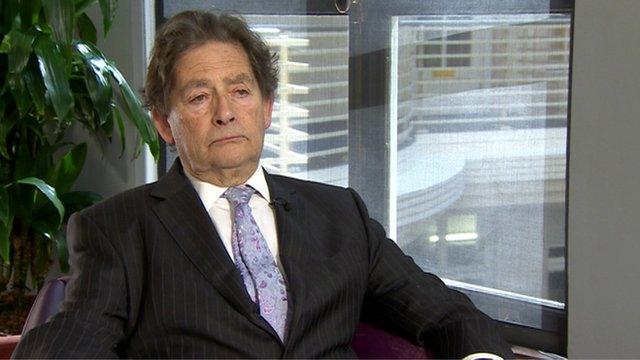Cameron will not get fundamental EU change - Lord Lawson
- Published
Lord Lawson tells Newsnight's Laura Kuenssberg: "He's looking for more... but what [David Cameron] will secure will be trivial"
David Cameron is unlikely to achieve anything of significance as he seeks to renegotiate the UK's EU membership, former Chancellor Lord Lawson has said.
The Eurosceptic Conservative peer said the prime minister's efforts probably will not deliver "fundamental change".
Lord Lawson told BBC Newsnight the PM promised to hold an in/out referendum "largely" to keep the Tories together.
Speaking on the eve of the anniversary of the 1975 referendum, he feels the UK will vote to stay in and "regret it".
Lord Lawson, who wants the UK to leave the European Union, said: "I think it's likely that the changes that David Cameron will secure will be inconsequential, of no significance at all.... but given the authority he has and the lack of a credible opposition leader I think it will be the same result."
He said he expected the UK to vote to remain in the EU and could not see anyone who would be a credible leader of the campaign for Britain's exit.
'Outside chance'
Last week, the prime minister began meeting European leaders as he tried to gather support for changes he wants before holding the UK's EU membership referendum, a vote which is to take place by the end of 2017.
Tighter rules on migrants' benefits are a priority for the Conservatives, as they want to control immigration from the EU.
Mr Cameron also wants an opt-out from the EU pledge of "ever closer union" and more influence for national parliaments over European laws.
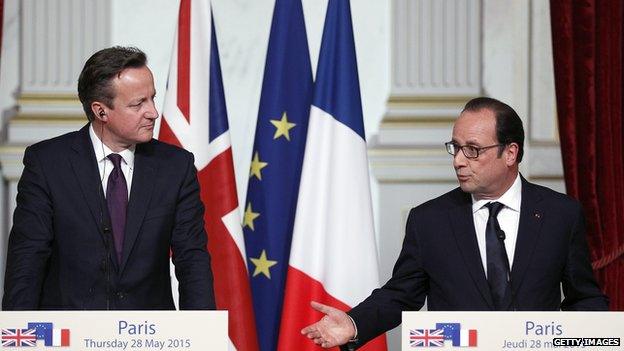
Mr Cameron has held a series of meetings with European leaders
Lord Lawson told Newsnight there was "a very small outside chance that he might achieve something of significance" but it was more likely to be "trivial".
He added that "in the short term, the next few years the PM will have bought peace in the Tory party".
As chancellor between 1983 and 1989, Lord Lawson was a senior figure in the government of Margaret Thatcher - which presided over a period of closer European integration, including the signing of the Single European Act in 1986, which created the single market.
In recent years, he has become a strong critic of the EU, arguing in an article in the Times in 2013 that it had become a "bureaucratic monstrosity" and the UK would be better off leaving.
On Wednesday, German Chancellor Angela Merkel said she was confident that conditions could be created for the UK to stay in the EU and she was "not losing sleep" over the issue.
Exit warning
But Martin Schulz, the president of the European Parliament, has warned the UK that threatening to leave the European Union was not the way to get a better deal for the country.
"It was not the idea of the European Union to call for a referendum in the UK," he told BBC Radio 5Live.
"This is a decision David Cameron and the Tory party has taken, not the European Union, therefore I find it not very meaningful that we have to answer to that question.
"You say you give us what we want and we stay in. This is nice and intelligent but it's not a deal we should make.
He added: "The UK can decide to stay in and then altogether we will reform the European Union. But this strategy - we tell you what we want and if we don't get it out we leave - this is not the way in which I find we can develop a fair deal."

EU referendum in focus
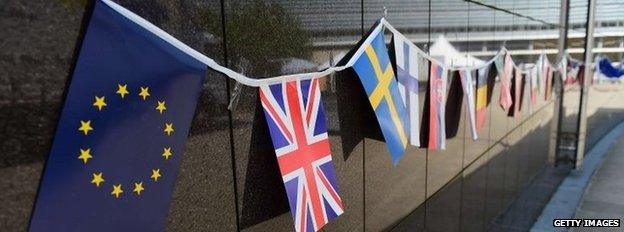
David Cameron is starting renegotiation of the terms of Britain's EU membership ahead of a referendum. Here is some further reading on what it all means:
The UK and the EU: Better off in or out?
What Britain wants from Europe
Q&A: The UK's planned EU referendum

Referendum date
Amid continuing speculation that the referendum could be brought forward to next year, Labour has said it will seek to amend legislation paving the way for the vote - which will be debated in Parliament for the first time on Tuesday - to exclude the possibility of it being staged on 5 May 2016.
The Electoral Commission has already advised against this date, saying it would clash with elections for the Scottish Parliament, Welsh Assembly and London mayor already due to be be held on that day.
The watchdog has said such a major constitutional decision as the UK's future in Europe should be decided in isolation from other national polls.
Shadow Europe minister Pat McFadden told the Daily Mail, external: "The decision is of such importance to the UK that it should be a stand-alone vote and should not be combined with any other election."
Labour now is now in favour of a referendum and would campaign for the UK to remain in the EU.
David Cameron has said, if it is feasible, he would like to hold the vote earlier than the end of 2017 but many Tory MPs have warned against such a move, saying it will not allow for a proper renegotiation.
Meanwhile, a survey for think tank British Future suggests most people have still not made up their minds on which way to vote in the referendum. The online poll of 3,977 people across Britain found fewer than a third have firmly made a decision.
- Published4 June 2015
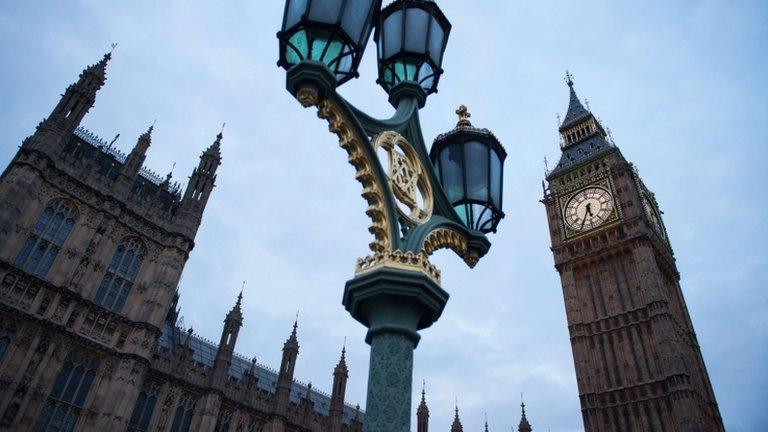
- Published4 June 2015
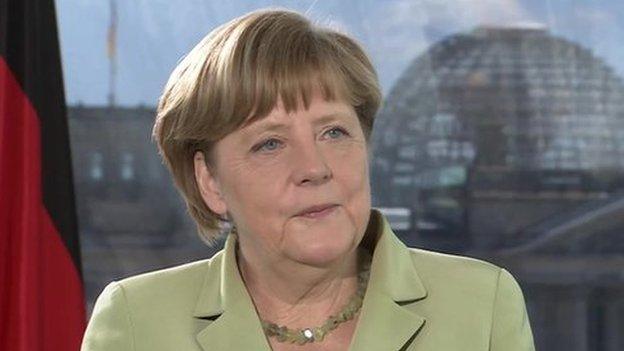
- Published4 June 2015
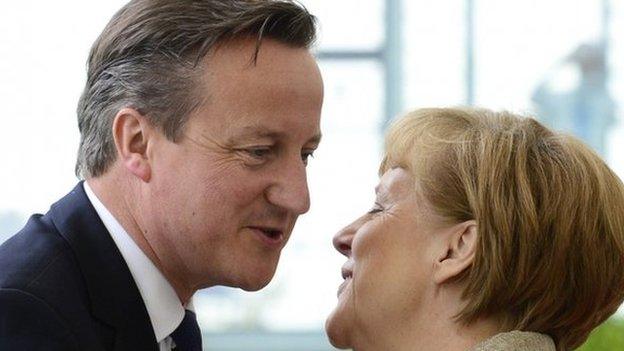
- Published30 December 2020

- Published1 February 2016
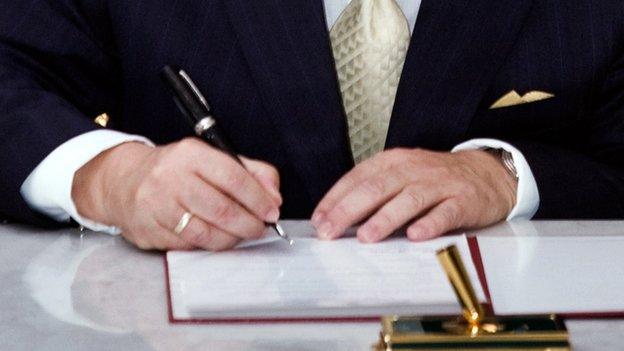
- Published7 May 2013
